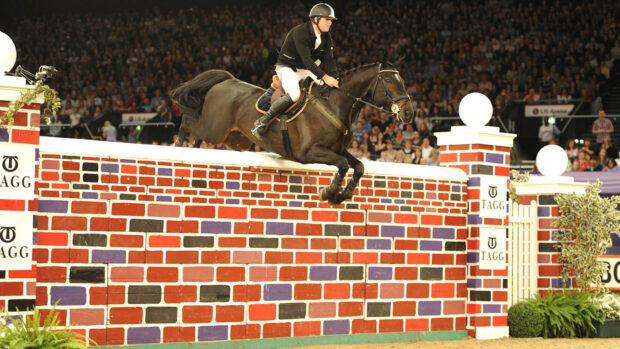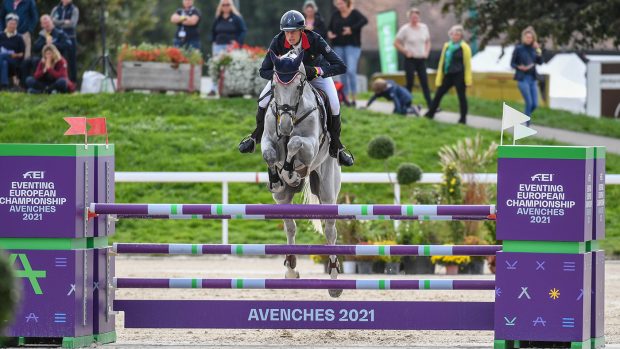Waterford Crystal, the Irish Horse who produced a flashy performance to cruise into the gold medal position with Cian O’Connor, tested positive for a banned substance after the individual show jumping competition, the International Equestrian Federation announced today.
The horse was among a total of four horses 40 out of the 200 participating in the equestrian disciplines were tested whose results were positive, pending any confirmatory analyses.
Two of the other horses to test positive were German horses: Ringwood Cockatoo, ridden by Bettina Hoy who was deposed from the eventing individual gold medal spot for a technical error, and Goldfever, ridden by Ludger Beerbaum, who heads the world show jumping rankings.

O’Connor (pictured above, centre) was reportedly “devastated” at the news, pre-empting any suggestions of foul play: “I believe that I won this medal fair and square, and that the horse has not been given anything that would make him jump better.
“I am fully aware of the FEI rules, and I know that I must take responsibility for any medication administered to my horse. I absolutely believe no performance-enhancing drugs were given to the horse,” the Irishman added.
He has, however, given details to the FEI of an incident in late July which could have a bearing on the matter. Waterford Crystal incurred a minor fetlock injury on the 22 July, and hydrotherapy treatment was advised. But in order that the horse should not damage himself during the treatment, he was prescribed a mild sedative.
The drug, O’Connor’s vet Mr James Sheeran explained, would disperse within 14 days and would not, in any case, influence the horse’s performance. “From all of my research I cannot understand how the medication prescribed by me, found in the A sample, could still be present in the horse’s system over a month later.
“Any residue that may have existed in the horse’s system at the time of the Olympic Games would certainly have no therapeutic influence, good or bad,” Sheeran concluded.
The four riders (Persons Responsible (PR) for the horses testing positive) have ten days in which to request a confirmatory analysis (B-sample) of the initial analysis (A-sample), and to request an oral hearing before the FEI committee.
If the B sample is positive, the PR must provide an explanation of the presence of a banned substance in the horse’s system.
If he does not request confirmatory analysis, the PR must submit a written explanation as to how the banned substance came to be in his/ her horse’s system or request an oral hearing before the FEI judicial committee.
Thereafter, a complete case file is compiled and the FEI Judicial Committee reaches a decision on each case. The PR has 30 days following the announcement of the decision in which to appeal to the Court of Arbitration for Sport.
The FEI could then chose to review the Athens results, in consultation with the International Olympic Committee.



